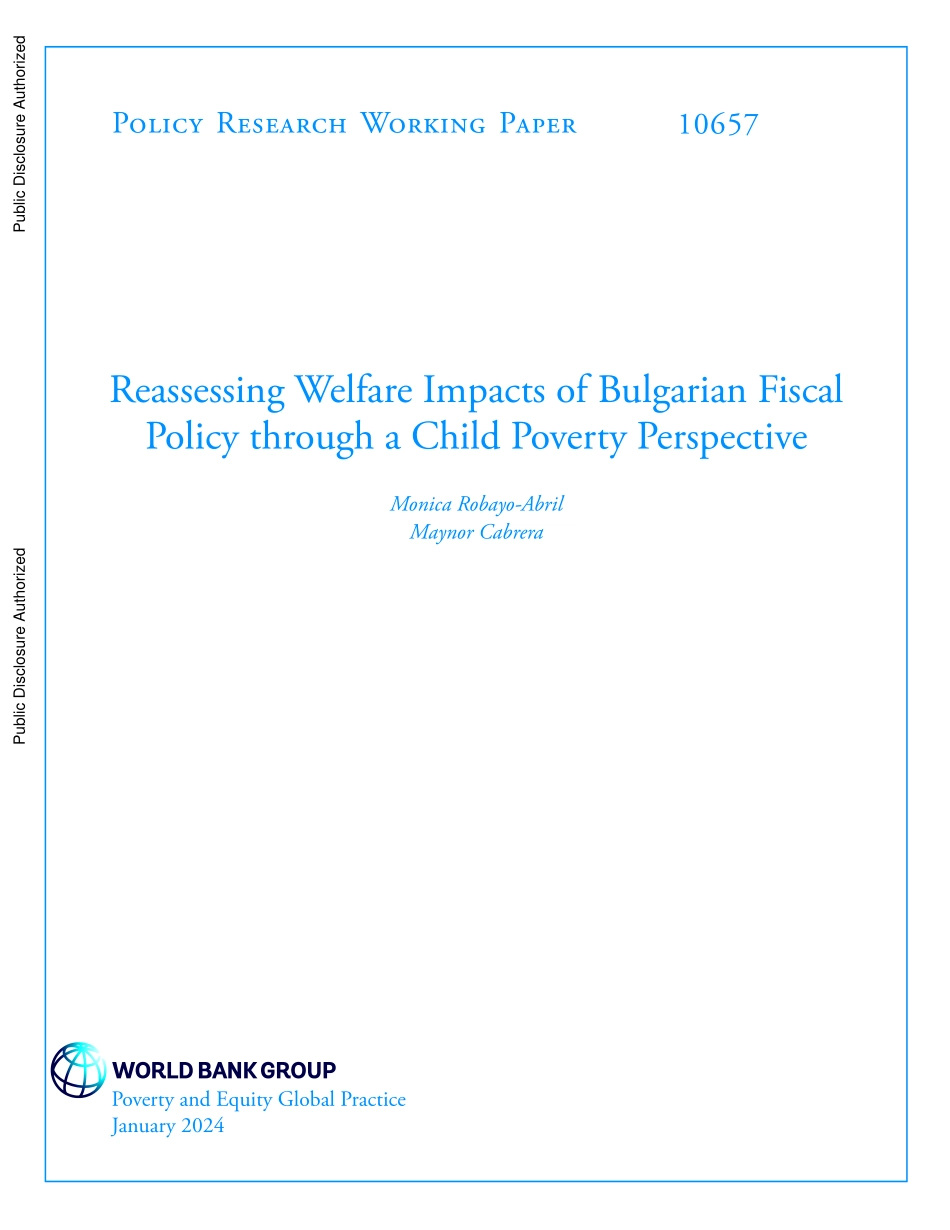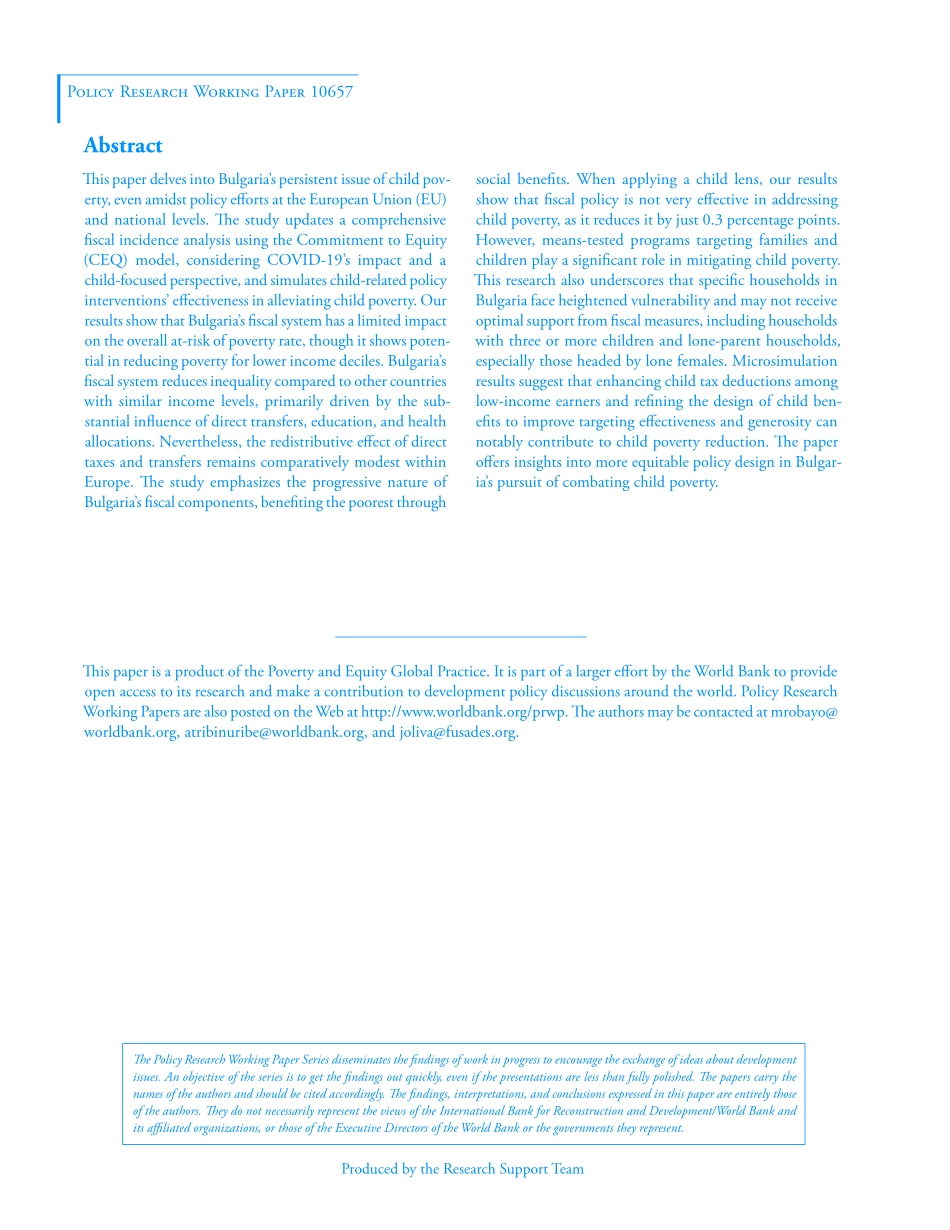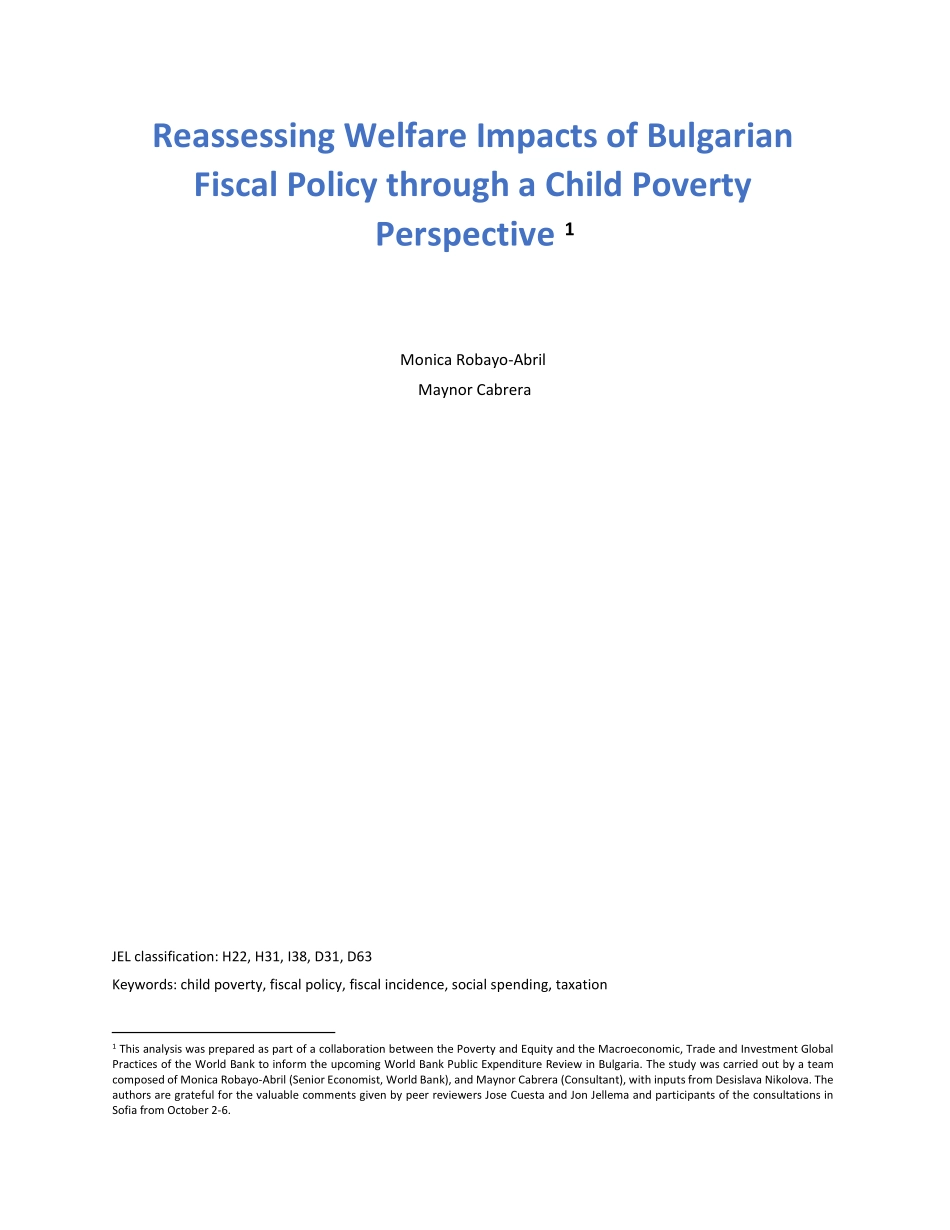Policy Research Working Paper10657Reassessing Welfare Impacts of Bulgarian Fiscal Policy through a Child Poverty Perspective Monica Robayo-Abril Maynor CabreraPoverty and Equity Global Practice January 2024 Public Disclosure AuthorizedPublic Disclosure AuthorizedPublic Disclosure AuthorizedPublic Disclosure AuthorizedProduced by the Research Support TeamAbstractThe Policy Research Working Paper Series disseminates the findings of work in progress to encourage the exchange of ideas about development issues. An objective of the series is to get the findings out quickly, even if the presentations are less than fully polished. The papers carry the names of the authors and should be cited accordingly. The findings, interpretations, and conclusions expressed in this paper are entirely those of the authors. They do not necessarily represent the views of the International Bank for Reconstruction and Development/World Bank and its affiliated organizations, or those of the Executive Directors of the World Bank or the governments they represent.Policy Research Working Paper 10657This paper delves into Bulgaria’s persistent issue of child pov-erty, even amidst policy efforts at the European Union (EU) and national levels. The study updates a comprehensive fiscal incidence analysis using the Commitment to Equity (CEQ) model, considering COVID-19’s impact and a child-focused perspective, and simulates child-related policy interventions’ effectiveness in alleviating child poverty. Our results show that Bulgaria’s fiscal system has a limited impact on the overall at-risk of poverty rate, though it shows poten-tial in reducing poverty for lower income deciles. Bulgaria’s fiscal system reduces inequality compared to other countries with similar income levels, primarily driven by the sub-stantial influence of direct transfers, education, and health allocations. Nevertheless, the redistributive effect of direct taxes and transfers remains comparatively modest within Europe. The study emphasizes the progressive nature of Bulgaria’s fiscal components, benefiting the poorest through social benefits. When applying a child lens, our results show that fiscal policy is not very effective in addressing child poverty, as it reduces it by just 0.3 percentage points. However, means-tested programs targeting families and children play a significant role in mitigating child poverty. This research also underscores that specific households in Bulgaria face heightened vulnerability and may not receive optimal support from fiscal measures, including households with three or more children and lone-parent households, especially those headed by lone females. Microsimulation results suggest that enhancing child tax deductions among low-income earners and refining the design of child ben-efits to improve targeting effectiveness and generosity can notably contribute to child poverty reduction. The paper offers ins...


